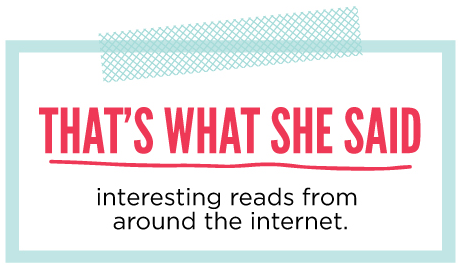The Christian Case For Vaccinating Your Kids | TIME
For Christians, however, this selfish individualistic mentality — the what’s good for me and mine and who cares about anyone else — goes against the core teachings of Jesus. One clear ethic resounding throughout the life of Jesus and his teachings is that we don’t have the luxury of ignoring each other. Instead, we have a responsibility to care for each other.
Neglect In Childhood Leaves Marks On Brain | IFLScience
Children deprived of loving care have reduced white matter in crucial parts of the brain compared to those raised in a better environment. The observations are not surprising in light of the well-known behavioral effects of neglect, but what this study has done is identify and measure the areas of the brain most affected.
On Choosing My Husband Daily
And honestly…even though there are plenty of big issues that can come up in marriage, I truly think that often it is the little things that matter most and add up to true happiness in a marriage. All of those small and seemingly insignificant actions that compile together to make a loving union. It is making the choice to hold my tongue instead of lashing out with a low blow when I’m feeling frustrated. It’s sending a text to let your husband know that you appreciate him. It is making a lunch or wearing that dress he loves. It is not walking away during a fight and hashing it out in a positive way. It is buying his favorite ice cream or surprising him with a little card. It is letting go of that mental record you have in your head that keeps track of all of his wrongs. It is husbands doing these things in turn.
The Unicorn Ally | Pyromaniac Harlot’s Blog
The effect of these demands, for me at least, is to make me less likely to say, well, much of anything, except a) to correct other people who are clearly even more wrong than me, or b) on issues where I have direct experience of oppression. The latter relies on a process I think of as Oppression Top Trumps. Oppression activists do tend to genuinely stick to the principle of paying the most attention to the people with the most experience within a particular axis of oppression, and I think this totally makes sense and I think is really awesome. It should be women talking about women’s lib, etc. rather than other people putting words into their mouths. So, to avoid getting my head bitten off, the first process I engage in, in order to speak, is justifying how issue x is one that’s personally affecting me – winning Oppression Top Trumps – which then lets me pick the words I use without anyone telling me they’re the wrong ones. In fact, having won Oppression Top Trumps on issue x, I then gain the right to correct other people’s words on an ad hoc basis. I do not, in general, write about issues that I can’t win Oppression Top Trumps about, because even if I care about them and I’ve researched them lots, etc. etc, I will by somebody’s definition probably get them wrong. In fact, the only reason I can possibly get anything right, is by being oppressed enough that my ideas are not open to questioning.
Liberal Bullying: Privilege-Checking And Semantics-Scolding As Internet Sport | Offbeat Empire
For those of you who like to fight the good fight for social justice and language sensitivity online, before writing that Tumblr missive or firing off that privilege-checking comment, I’d love to encourage you to take a moment to ask yourself these questions: Am I living my values with this exchange? If my goal is tolerance and sensitivity, am I embodying both those values in this conversation?
What are my motivations here? Do I want to make a difference, or just feel like I’m right? What would “making a difference” look like in this context?
Is this person an ally? How can I best communicate with them to ensure they stay that way?
What is my ultimate goal in my activism? Is this exchange the best use of my time to achieve that ultimate goal?



